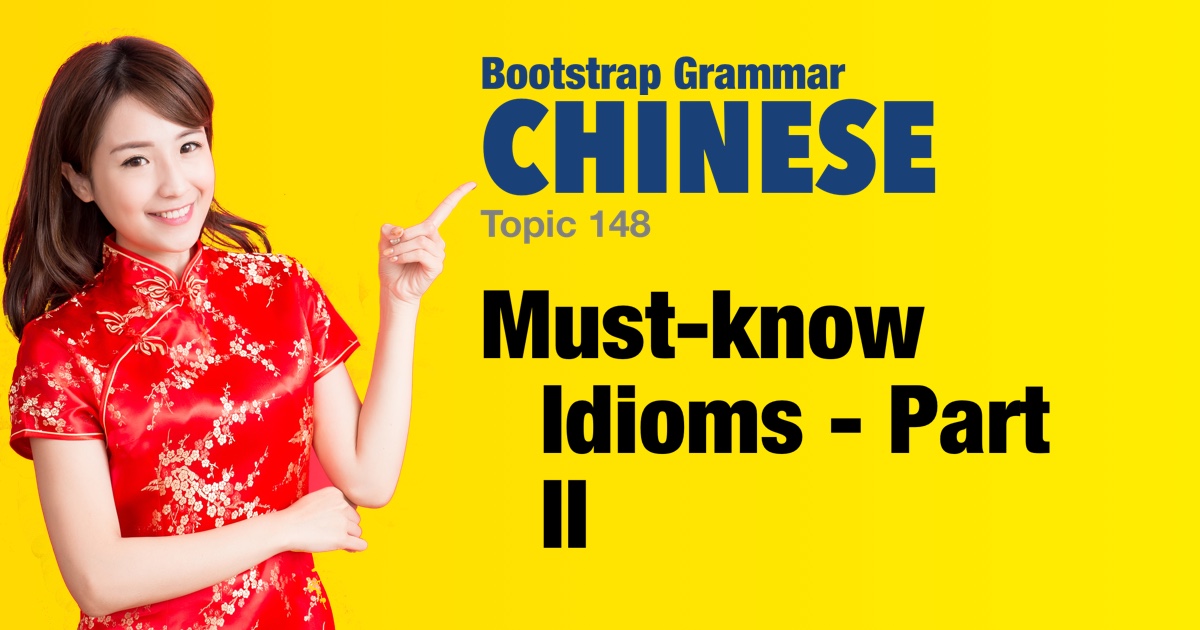Chinese grammar - Must-know Idioms - Part II |
|||
|
|||
Here is Part II of 30 must-know words/idioms that every Chinese language learner needs to know. |
| Examples: | |
|
这个电影好看。
zhè ge diànyǐng hǎokàn. This movie is good (looking).
|
|
|
你的答案是对的。
nǐ de dá'àn shì duìde. Your answer is correct.
|
|
|
这个句子是不对的。
zhè ge jùzi shì bú duìde. This sentence is incorrect.
|
|
|
我们赢了,太好了!
wǒmen yíng le,#tài hǎo le! We won, great!
|
|
|
时间到了,走吧。
shíjiān dào le,#zǒu ba. It's time, let's go.
|
|
|
为我们的友谊,干杯!
wèi wǒmen de yǒuyì,#gānbēi! To our friendship, cheers!
|
|
|
别生气,我只是开玩笑。
bié shēngqì,#wǒ zhǐ shì kāi#wánxiào. Don't be mad, I'm just kidding.
|
|
|
路很滑,小心。
lù hěn huá,#xiǎoxīn. The road is slippery, be careful.
|
|
|
我今天工作很忙,累了。
wǒ jīntiān gōngzuò hěn máng,#lèi le. I was very busy at work today, I'm tired.
|
|
|
一切都会好的,别担心。
yíqiè dōu huì hǎo de,#bié dānxīn. Everything will be fine, don't worry.
|
|
|
我喜欢这个地方,我也是。
wǒ xǐhuān zhè ge dìfang,#wǒ yě shì. I like this place, me too.
|
|
|
请等一下,我马上回来。
qǐng děng yíxià,#wǒ mǎshàng huílái. Please wait a moment, I'll be right back.
|
|
|
我们去吃饭。好吧。
wǒmen qù chīfàn.#hǎo ba. Let's go eat. Okay then.
|
|
|
这个答案没错。
zhè ge dá'àn méicuò. This answer is correct.
|
|
 |
|



